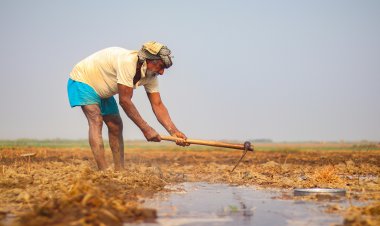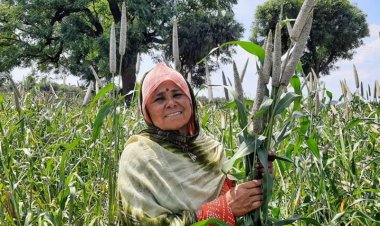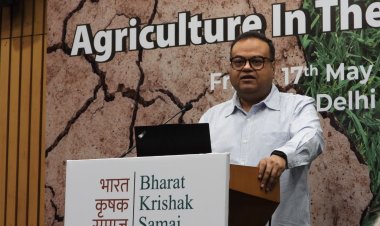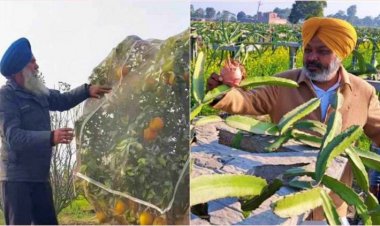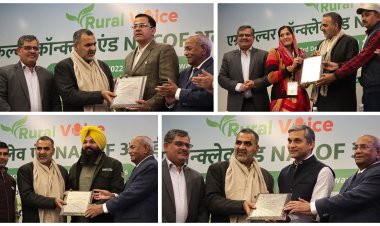Indian farm sector needs re-orientation: Eco Survey
The Indian agriculture has performed well but the sector needs ‘re-orientation’ in the backdrop of certain challenges like adverse impacts of climate change, rising input cost, etc.,” the Economic Survey for 2022-23 said
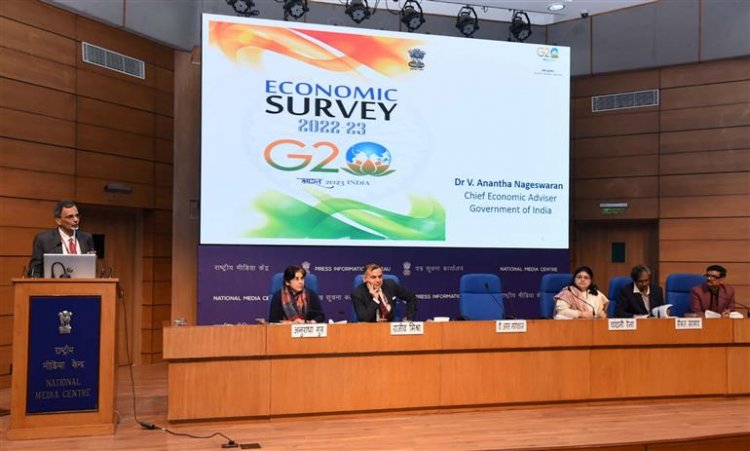
The performance of the agriculture and allied sector has been buoyant over the past several years, much of which is on account of the measures taken by the government to augment crop and livestock productivity and to ensure certainty of returns to the farmers through price support.
The Economic Survey presented in Parliament on Tuesday said other measures aimed at promoting crop diversification, improving market infrastructure through the impetus provided for the setting up of farmer-producer organisations and promotion of investment in infrastructure facilities through the Agriculture Infrastructure Fund.
“The Indian agriculture has performed well but the sector needs ‘re-orientation’ in the backdrop of certain challenges like adverse impacts of climate change, rising input cost, etc.,” the Economic Survey for 2022-23 said.
The other challenges are fragmented landholdings, sub-optimal farm mechanisation, low productivity, disguised unemployment, rising input costs, etc. "While Indian agriculture has performed well, the sector needs re-orientation in the backdrop of certain challenges...," it said.
Stating that the performance of the agriculture sector remains critical to growth and employment in the country, the Survey said investment in the sector must be encouraged through an affordable, timely and inclusive approach to credit delivery. It may be noted that more than 75 per cent of rural female workers are employed in the agriculture sector. This implies a need to upskill and create employment for women in agriculture-related sectors such as food processing.
"Here, the self-help groups (SHGs) can play a crucial role in shaping rural women's potential into concrete developmental outcomes of financial inclusion, livelihood diversification, and skill development," the Survey said. According to the Survey, the agriculture sector has grown at an average annual growth rate of 4.6 per cent during the last six years. It grew by 3 per cent in 2021-22 compared to 3.3 per cent in 2020-21.
In recent years, India has also rapidly emerged as the net exporter of agricultural products. During 2021-22, agricultural exports reached an all-time high of USD 50.2 billion. The Survey said this growth is partly attributable to good monsoon years and partly to the various reforms undertaken by the government to enhance agricultural productivity.
Policies such as Soil Health Cards, the Micro Irrigation Fund, and organic and natural farming have helped the farmers optimise resource use and reduce the cultivation cost. The promotion of Farmer Producer Organisations (FPOs) and the National Agriculture Market (e-NAM) extension platform have empowered farmers, enhanced their resources, and enabled them to get good returns.
Agri Infrastructure Fund (AIF) has supported the creation of various agriculture infrastructures. Kisan Rail exclusively caters to the movement of perishable agri-horti commodities. The Cluster Development Programme (CDP) has promoted integrated and market-led development for horticulture clusters. Support for creating a startup ecosystem in agriculture and allied sectors is also being provided to the farmers.
All these measures are directed towards supporting the growth in agricultural productivity and sustaining its contribution to overall economic growth in the medium term, the Survey added.
The report said private investment in agriculture increased to 9.3% in 2020-21 and MSP for all mandated crops was fixed at 1.5 times of all India weighted average cost of production from 2018.
Institutional Credit to the Agricultural Sector continued to grow to 18.6 lakh crore in 2021-22, it said.
Foodgrains production in India saw sustained increase and stood at 315.7 million tonnes in 2021-22. Free foodgrains to about 81.4 crore beneficiaries under the National Food Security Act for one year from January 1, 2023, was another highlight.
About 11.3 crore farmers were covered under the Scheme in its April-July 2022-23 payment cycle.
Rs 13,681 crore was sanctioned for Post-Harvest Support and Community Farms under the Agriculture Infrastructure Fund. Online, Competitive, Transparent Bidding System with 1.74 crore farmers and 2.39 lakh traders put in place under the National Agriculture Market (e-NAM) Scheme.
Organic Farming was being promoted through Farmer Producer Organisations (FPO) under the Paramparagat Krishi Vikas Yojana (PKVY).
India stands at the forefront to promote millets through the International Year of Millets initiative, the Survey added.



 Join the RuralVoice whatsapp group
Join the RuralVoice whatsapp group




















